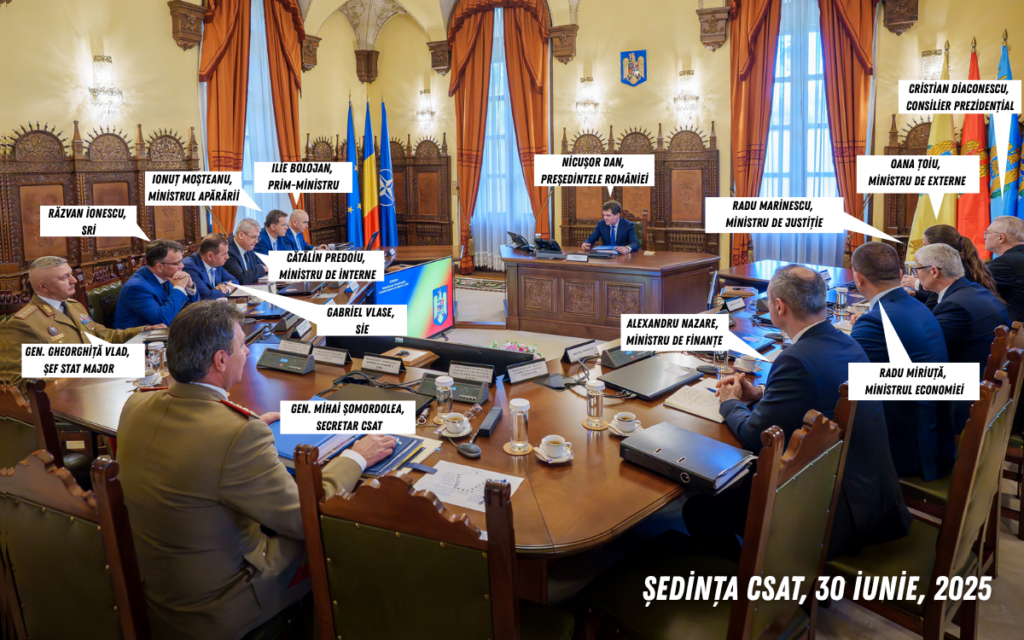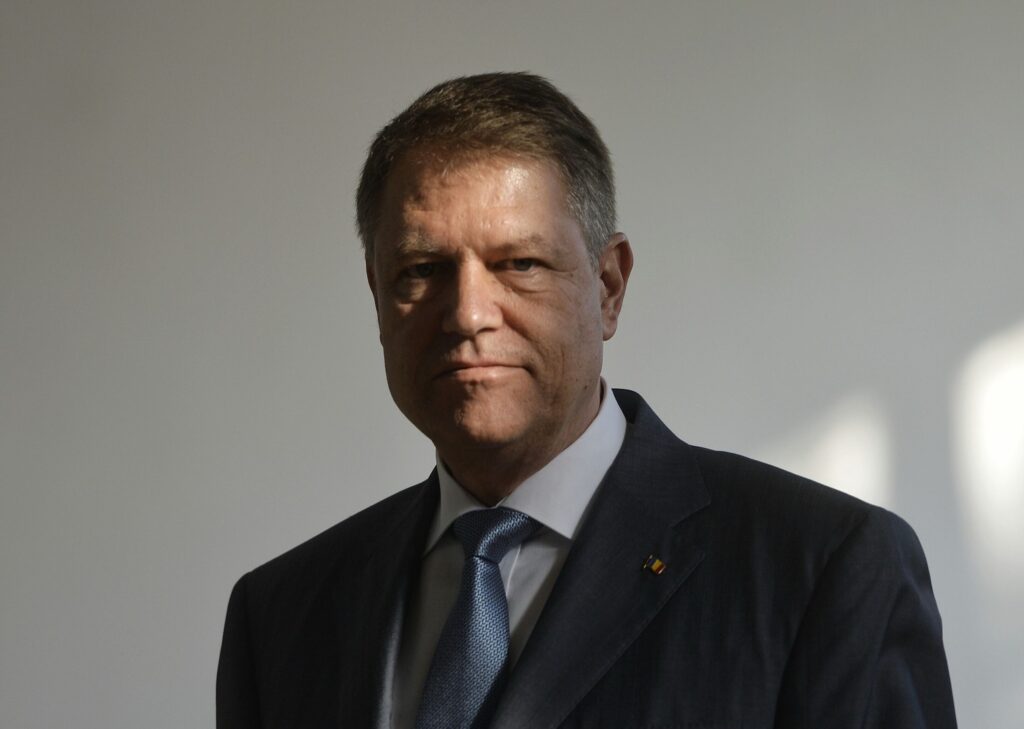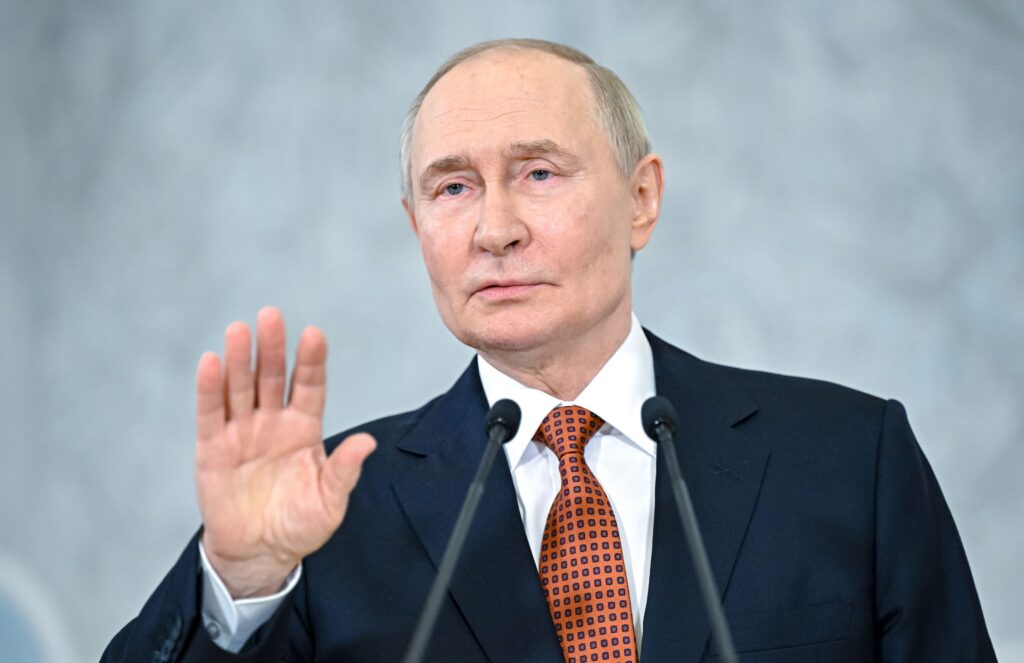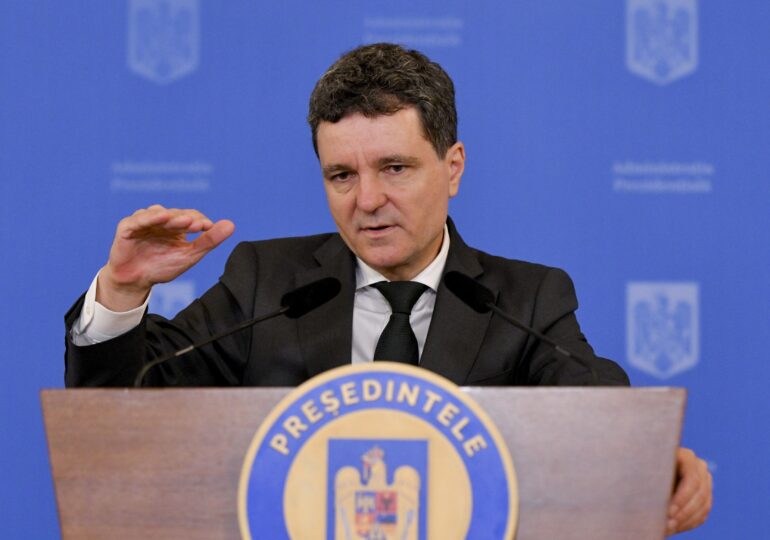The first CSAT meeting in President Nicușor Dan’s term did not provide any clue regarding the greatest mystery in 35 years of democracy, the intervention in the electoral process of internal and external entities that led to the annulment of last year’s presidential elections.
Although during the electoral campaign, the current head of state promised that solving the unprecedented attack on Romania’s security would be a priority of his mandate, the statement from a meeting of over three hours between the president and the heads of intelligence agencies and key ministries in the government does not offer any perspective on resolving last year’s enigmas.
„One… subject discussed in the Supreme Council of National Defense meeting focused on the developments regarding the illegal and unprovoked war launched by the Russian Federation against Ukraine, analyzing the situation on the front and the status of negotiations, from the perspective of implications for Romania,” might be a reference to the existence of reports on Kremlin’s interference methods in Romania.

A mysterious statement
On November 25, 2024, shortly after the vote counting process for the first round of the presidential elections was completed, when it was clear that independent candidate Călin Georgescu had won the ballot, the Cotroceni Palace issued a mysterious statement:
"The President of Romania has not received information from the state institutions regarding the existence of risks of influencing the presidential elections or regarding external interference in the electoral process and nor regarding a way to promote the mentioned candidate... on certain social networks, raising suspicions," stated Iohannis, as quoted by Mediafax.
The former president's reaction came after avoiding the press on election day and refusing to make any statements except for a weak appeal: "Let everyone go to vote!"

On November 24, 2024, we had a disoriented, stressed president who did not have the strength to acknowledge that something unusual was happening. The next day, he announced that he had no responsibility because the Romanian Intelligence Service and the Foreign Intelligence Service "did not inform him about the risks of influencing the elections."
Two weeks later, on December 6, 2024, Klaus Iohannis, as if the previous statements did not exist, addressed the Romanian citizens and delivered the following message: "Shortly after the first round of the presidential elections, I received signals, initially only by phone, from services that certain things are strange.
I immediately ordered a thorough investigation, to verify everything that can be verified, and shortly after, I received written briefings. I was very concerned about what I read there and urgently convened the Supreme Council of National Defense." The former president's three statements are contradictory.
Nothing about the annulment of elections
Following that CSAT meeting, the declassification of the famous reports made by the intelligence services took place, leading to the Constitutional Court deciding to annul the elections.
From that moment on, a long and painful process of rebuilding the trust of Romanian citizens and the international community in democracy in our country began. That process is far from over without a detailed explanation coming from the president or the Parliament, following the hearing of the parties involved, to shed light on the sequence of events, show their gravity, and establish responsibilities.
Violating common sense, reality, and Romanian law, Georgescu claimed he did not raise funds for the campaign and did not have election expenses. Instead, he had a malevolent benefactor in the person of Putin. The blitzkrieg on social networks consisted of disinformation and a multimillion-dollar effort, in Leninist style, to destroy democracy in Romania.
The effort also included undermining the security interests of the US, NATO, and the EU. And just in time, this hidden invasion of Romania's electoral process was discovered by Romanian and Western intelligence services.
Mark Gitenstein, Adrian Zuckerman, and Jim Rosapepe, former US ambassadors to Romania, in an article published by Politico.eu
The first CSAT meeting, convened by President Nicușor Dan following the official statement, suggests that state institutions and the current government are more inclined to bury the information related to the serious events that led to the annulment of the elections rather than investigate them and present a complete and coherent report to the public.
In addition to discussions on tax evasion and Romania's position regarding the military conflict at the border, another topic discussed in CSAT was related to the "cyber threat" against our country.
The National Cyber Security Directorate, an institution under the Romanian Government, is an important component in deterring hybrid attacks on digital infrastructure, but it has no competence regarding the propagandistic component and false information on social networks, another facet of hybrid warfare.
However, the fact that the activity report of the directorate for the year 2024 was discussed indicates a concern at the CSAT level regarding Russia's interference in Romania.
"Last year, the overall level of cyber threats in our country was high. In the context of a volatile and unpredictable digital landscape, the Directorate's activities and adaptation to fluctuations and challenges from multiple sources were evaluated.
At the same time, concrete data were presented regarding the current level of cyber threats referring to incidents, critical vulnerabilities, and cybersecurity risks, the status of fulfilling the Directorate's objectives, as well as the cyber risks and threats that were priorities for the DNSC in 2024," as stated in the CSAT statement.
There were no vulnerabilities, but there were
According to the above data, the cyber directorate shows that Romania was subjected to various types of attacks throughout last year.
The reference to the volatile and unpredictable digital landscape may subtly indicate that the country's institutions and intelligence agencies were caught off guard by Russia's interference in last year's electoral process.
It is worth noting that during the CSAT meeting on December 6, 2024, the Special Telecommunications Service (STS) announced that "...no vulnerabilities or malfunctions were identified that would impact the legal, optimal, and secure provision of communication services and information technology assumed by STS."
The CSAT meeting on June 30 did not bring anything new regarding the answers expected by the public regarding the events that led to the historic decision to annul the presidential elections.
Many institutional reactions remain unclear. Neither the president nor the government have yet expressed official positions to explain the danger, whether it has passed, and whether measures have been taken to ensure that Romania's electoral process is no longer compromised.
Confidence in democracy severely affected
"In 2024, Putin spent millions to elect a pro-Russian president in Romania. His method: infiltrating elections, supporting candidates with authoritarian tendencies, and manipulating digital platforms to influence public perception.
Thus, the Russian leader propelled candidate Călin Georgescu from obscurity, and in just two weeks, Georgescu garnered 21% of the votes, leaving behind 15 divided and astonished candidates," as stated in an opinion article published in Politico.eu and signed by Mark Gitenstein, Adrian Zuckerman, and Jim Rosapepe, all former US ambassadors to Romania in different periods.

Using their experience, expertise, and professional relationships, American diplomats described well and clearly the strategy Putin applied in Romania, but the authorities in Bucharest continue to avoid explaining why, how, and who is responsible for the situation created.
The first CSAT meeting after the presidential elections was a failure in resolving the major crisis caused in Romanian society by the annulment of the presidential elections. Until coherent answers are provided regarding what happened last year, confidence in democracy will remain at a low level, with all the resulting consequences and vulnerabilities.

